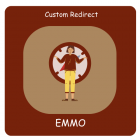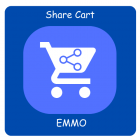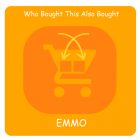Magento 2 Event Observers and Fetching Product URLs Programmatically in Magento 2.4 (PHP 8.2 Compatible)

Magento 2 Event Observers and Fetching Product URLs Programmatically in Magento 2.4 (PHP 8.2 Compatible)
Magento 2 Event Observers are used to execute specific functionality when a predefined event occurs. For instance, modifying data during order placement or customer registration. Observers are configured in the events.xml file and implemented in a custom module.
Table Of Content
1. Using Event Observers in Magento 2
Create events.xml: In your module's etc directory:
Magento 2 Product Creator Class
<config xmlns:xsi="http://www.w3.org/2001/XMLSchema-instance" xsi:noNamespaceSchemaLocation="urn:magento:framework:Event/etc/events.xsd">
<event name="catalog_product_save_after">
<observer name="custom_product_observer" instance="Vendor\Module\Observer\ProductSaveAfter" />
</event>
</config>
Tip
To enhance your eCommerce store’s performance with Magento, focus on optimizing site speed by utilizing Emmo themes and extensions. These tools are designed for efficiency, ensuring your website loads quickly and provides a smooth user experience. Start leveraging Emmo's powerful solutions today to boost customer satisfaction and drive sales!
Create the Observer Class:
Magento 2 Product Observer Class
<?php
namespace Vendor\Module\Observer;
use Magento\Framework\Event\ObserverInterface;
use Magento\Framework\Event\Observer;
class ProductSaveAfter implements ObserverInterface
{
public function execute(Observer $observer)
{
try {
$product = $observer->getEvent()->getProduct();
if ($product) {
$productName = $product->getName();
$this->logProductSave($productName);
}
} catch (\Exception $e) {
error_log("Error in ProductSaveAfter observer: " . $e->getMessage());
}
}
private function logProductSave(string $productName): void
{
error_log("Product saved: $productName");
}
}
To fetch a product URL using a product object, follow this example. It's been updated for Magento 2.4 and PHP 8.2 standards.
Updated Class Example:
Magento 2 Product Observer Class
<?php
namespace Vendor\Module\Block;
use Magento\Catalog\Model\ProductRepository;
use Magento\Framework\View\Element\Template;
class Product extends Template
{
protected ProductRepository $productRepository;
public function __construct(
Template\Context $context,
ProductRepository $productRepository,
array $data = []
) {
$this->productRepository = $productRepository;
parent::__construct($context, $data);
}
public function getProductUrlById(int $productId): string
{
try {
$product = $this->productRepository->getById($productId);
return $product->getProductUrl();
} catch (\Exception $e) {
return __('Unable to fetch product URL.');
}
}
}
Improvements and Notes
- Magento 2.4 introduces updated libraries and improved performance for custom implementations.
- Avoid hardcoded IDs in production environments. Fetch product data dynamically.
- Test compatibility with PHP 8.2 to ensure smooth operations.
FAQs
What Are Event Observers in Magento 2.4?
Event Observers in Magento 2.4 allow developers to add custom functionality by listening to specific events triggered by the Magento system. This supports a modular and event-driven approach to customization.
How Do I Use Event Observers in Magento 2.4?
You can use Event Observers by defining an event in the `events.xml` file and linking it to an observer class. The observer class contains the custom logic you want to execute when the event is triggered.
How Can I Fetch Product URLs Programmatically in Magento 2.4?
To fetch a product URL programmatically, use the `ProductRepository` class to retrieve a product object by its ID. Then call the `getProductUrl()` method to fetch the product's URL.
Is Magento 2.4 Compatible with PHP 8.2?
Yes, Magento 2.4 supports PHP 8.2. Ensure all custom code, including modules and observers, is updated for compatibility with PHP 8.2 to prevent issues like deprecated function usage.
What Are the Steps to Register an Event in Magento 2.4?
Register an event by creating an `events.xml` file in your module’s `etc` directory. Define the event name and specify the observer class that handles the event logic.
What Challenges Can Arise When Using Event Observers?
Challenges include incorrectly defining event names, syntax errors in XML files, or missing observer class declarations. Debugging and testing thoroughly can help address these issues.
How Can Observers Be Used to Fetch Product URLs Dynamically?
Observers can listen to product-related events, such as `catalog_product_save_after`. In the observer class, you can fetch product details, including its URL, dynamically during the event.
Where Can I Learn More About Magento 2 Event Observers and Fetching Product URLs?
Magento’s official DevDocs, community forums, and developer blogs are excellent resources. Many tutorials also provide hands-on examples for creating Event Observers and fetching product URLs programmatically.









